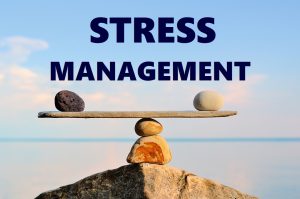Stress is a normal response to everyday life, but if it becomes overwhelming and unmanageable it can become unhealthy and lead to mental health issues and increase the risk for chronic disease.
Simple activities such as petting your dog, writing in a journal, or socializing can provide easy stress relief. Deep breathing techniques, meditation practices, and physical exercise are also excellent ways to decrease tension levels.
1. Take a break.
If your usual ways of managing stress aren’t helping, it may be time for something different. Substituting comforting treats like junk food or sitting on the sofa for hours while bingeing on TV shows with alcohol, or reaching for another beverage after work only worsens matters over time.
Find healthy alternatives such as exercise (it doesn’t have to be strenuous!) or sipping warm tea with lemon and ginger, both of which can help energize and clear the mind while simultaneously cultivating positive thoughts. Meditating or writing in a journal daily are also great ways to keep yourself on the positive path.
If you’re feeling tense at your desk at work, try shoulder rolls and neck stretches. A quick walk at lunch or even just giving your foot an impromptu massage using a golf ball can also help alleviate tension. Chewing gum (which has been shown to reduce anxiety), drinking green tea or watching comedies are other natural ways of relieving stress – just avoid caffeine and high-sugar foods which could worsen matters!
2. Listen to music.
There are various methods of relieving stress, from taking a hike or reading a book, to quickly and effectively soothing nerves at work or home. But even in those instances when traditional relaxation strategies don’t seem effective enough, quick and simple tactics may still work to bring down anxiety levels quickly and effectively.
Listening to music can help lower both heart rate and blood pressure, so try listening to meditation tracks or relaxing music that relaxes you. Or practice pranayama breathing–a yogic technique consisting of taking breaths through one nostril at a time–in order to reduce anxiety and rejuvenate the body.
Another effective way to relieve stress is talking it over with someone you trust – talking can make you feel less alone, less vulnerable, and better prepared to cope with life’s inevitable stressors.
Laughter is a natural and instant stress reliever. Reading humorous books, watching comedy films or trying laughter yoga are all effective means of increasing happiness and decreasing cortisol levels, or you could simply chew gum which releases endorphins which helps lower cortisol levels; or try sipping green tea containing L-Theanine which works like natural anti-anxiety agents.
3. Exercise.
Stress is a natural response to certain demands or threats to one’s health and well-being, such as demanding jobs or threats to personal security. While stress can serve as an excellent motivator, too much or prolonged exposure to high levels of stress may have detrimental effects on one’s mental and physical wellbeing.
Life events which may seem positive — like having a baby, getting married, or moving into a new home – can also bring with them stress. Stress is part of living; to maintain optimal health it must be managed.
Exercising can help ease stress by decreasing cortisol, the hormone produced in response to anxiety and stress. Jogging or attending a Tai Chi class are great forms of physical exercise which can reduce cortisol production while simultaneously elevating your heart rate – both can bring joyous feelings of accomplishment that boost self-esteem.
Other effective techniques for relieving stress include meditation, a healthy diet and social engagement with friends and family – however these should not replace professional mental health services as treatments for stress relief.
4. Eat healthy.
Stress hormones can increase inflammation, decrease immunity, and raise the risk of health conditions ranging from low mood to high blood pressure. But there are strategies available that can help combat ongoing stressors: healthy diet, plenty of restful sleep and physical activity, mental health support services and herbal supplements designed specifically to support adrenal function.
stressed individuals often turn to junk food, alcohol and other comforting substances in search of temporary comfort, but these choices often end up having serious repercussions over time. Eating a diet filled with fresh produce, lean proteins and whole grains will keep both your body and brain healthier in response to stress.
Establish a regular meal time each day to help regulate your hormone levels, and include foods known to aid stress relief such as avocados, chia seeds and dark chocolate into your daily menu. Be sure to drink enough water and unsweetened beverages such as green tea that contain L-theanine which has been proven to boost cognition and feelings of calm.
5. Sleep.
Stress is a normal part of life and in moderation it can even be beneficial. However, excessive or chronic levels can have disastrous results on our physical and mental wellbeing, leading to insomnia, anxiety and decreased focus – and could even contribute to heart disease and high blood pressure conditions if left uncontrolled.
Quality sleep is vital to helping your body recharge and repair itself at night, but when stressed out it can make falling asleep more challenging than before. Break the cycle by learning how to improve nighttime sleeping.
Deep breathing techniques have been proven to lower stress hormone levels. Find a quiet place, sit comfortably and take five deep breaths into your belly before slowly exhaling them out again – repeat this for five minutes to reduce tension in your body and mind, improve sleep quality while relieving tension simultaneously. Use deep breathing techniques both morning and night before bedtime for maximum effectiveness!




